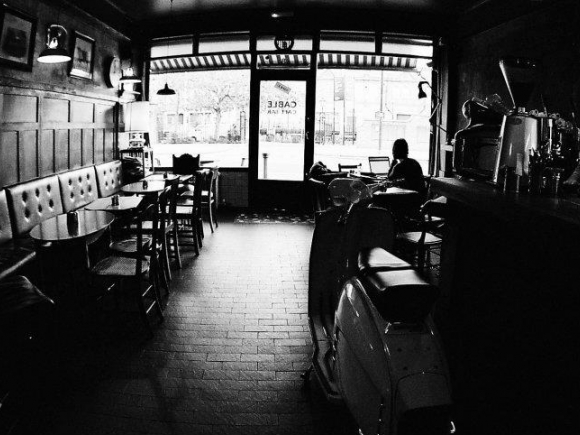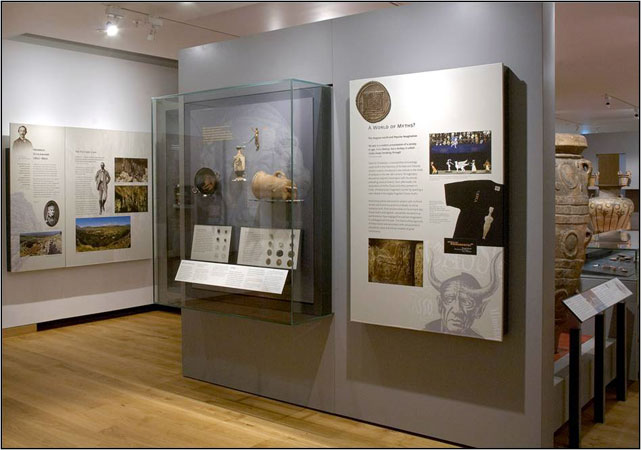- Visit historical sites.
- Eat ALL the amazing food.
- Get drunk with the mayor.
This post is about those things.
The medieval town of Saint-Cirq-Lapopie is a rigourously preserved - but actively populated - listed medieval town. Cheif town of a Quercian viscounty, it changed hands and was divided among several fedual dynasties, hence the gorgeously fortified location. Fellow history nerds, go to their tourism website and glut yourself on photos.
Inspire ALL the fantasy authors.
France has been occupied a hell of a lot longer than that, of course. There are Roman ruins everywhere, including an amphitheatre in Cahors. This is in fact, the area is where Cro-Magon man was discovered, and caves at Pech Merle contain some of the most famous prehistoric paintings in the world.
BBC put together an absolutely fascinating documentary on these caves. Watch it. Seriously. Way better than trying to get us to synopsise them. Ape Man: Adventures in Human Evolution.
South-western france is the land of duck. This is where foie gras started, and duck confit. But you don't even have to be complicated about it - take a good duck breast, salt and pepper it, and sear it quickly, like a steak.
Nice and rare.
This is not fancy the way Americans think of French food - this is also the land of cassoulet and le déjeuner de l'ouvrier - the workingman's lunch. As some of you may know, all of France shuts down for two hours in the middle of the day. There is absolutely nothing open in France from noon-2pm except for restuarants. That is precisely when the restaurants are open, no earlier or later, until dinner, and all the rest of France is in those restaurants. Our hosts joked that lunch is the French religion. The ouvrier's lunch really is a thing you can order in restuarants - it's a serious amount of solid, rich, simple, meat-heavy food, with a big bottle of red wine and plenty of bread to sop up the gravy. Exactly what you need after a long morning of physical labor, followed by a leisurely break and coffee (which is actually espresso) to get back to work.
A cassoluet dish is the original slow cooker - a heavy earthenware pot used to braise fatty cuts of meat and beans and vegetables all together. It's calorically dense, protien heavy, inexpensive, cooks unattended all day, and is a great way to break down tough cuts of meat like shoulder.
Cooking with wine. Step 1: open wine. Step 2: drink wine. Step 3: cook.
Lamb "cassoulet" with leeks and bleu cheese
You will need:
- Inexpensive, fatty and/or gristly cuts of lamb, mutton, or beef, preferably from a quality, grass fed animal. Think pastoral French farms, but the non-steak bits they didn't sell to fancy restaurants.
- Balsamic vinegar de modena
- Butter (REAL butter, please, European style, from a good local dairy.)
- Leeks (about a leek per two person)
- Thyme (fresh. Don't be silly and buy it in a plastic package - Trader Joe's sells thyme in pots year round. Buy a whole pot and put it on your windowsill and have it all year.)
- White beans (traditional, and the prettiest, but kidney or black or most beans would work) canned or soaked from dry until hydrated.
- Bleu cheese (to respect the principle of the recipie, get something hyper-local you're excited about)
- Cheap but not shitty red wine - if in doubt, go with a Vin de Pay d'Oc or similar. Southern France, should cost under $5 a bottle even in America. Widely available AOC/AOP ones under $10: Corbieres, Minervois, Cotes Du Rhone, Ventoux.
- Bread - of the crusty, hearty, European variety. The unsliced, fresh-baked-that-morning, smells like heaven kind. Baguettes work, but something whole grain or dark brown and substantial is even better.
Marinade the meat in baslamic overnight, turning it over once to soak both sides evenly. You can marinade them directly in the dish (any casserole or baking type dish will do - but deep stoneware ones with a cover are better) If using dry beans, soak them overnight in a separate pot.
Put the hydrated beans (drained of water) and chopped leeks (wash carefully, leeks tend to bring some dirt up between their layers as they grow) in with the meat and balsamic. The leeks should be piled high - they will melt down to nothing with heat. Add some liberal pats of butter all over the top and sprinkle freely with salt and pepper. Scatter thyme (pull the leaves off the stems by pulling through your fingers) over the top and pour about a glass of wine in.
Cover and bake on low-ish for a long while. At least 3 hours, but it will be fine up to 6 hours. Nothing will burn or expolode if you leave the house to work in the fields :)
When you come back in from working, pull the whole dish out of the oven and put in on a trivet in the centre of the table. Crumble big chunks of the blue cheese on the now-emerged-from-the-melted-buttery-goodness lamb. Accompany it with the bread, the rest of the wine, and the rest of the butter.
Voila.
If this is religion, yes, I'll take a pamphlet.
You can vary this up with pretty much any meat, vegetables, beans, and spices you have on hand. Just remember: get the good quality ingredients, throw them in a pot with butter and wine, and slow cook. We did chicken (big cuts on the bone with skin, of course) over potatoes with figs and shallots (and wine and butter and thyme) several times as well.
To completely destroy your notion of French food as fancy once and for all, I give you my favourite pairing of all, another frequent déjeuner de l'ouvrier of ours: champagne and pizza.
IF YOU HAVE NOT PUT FRIED EGG ON PIZZA YOU HAVE NOT LIVED
Laura: You've probably forgotten point three by now, but I haven't: getting drunk with the mayor. I was heading into Lherm to see if there was anything there that would earn it the title of a town, and not just a couple of neighbours in the wilderness. And by that I mean: does it have a place I can get drunk?
Naturally, Gaspar escorted me into town, and the rest of the doggie committee followed suit. By the time I arrived at the Bar a Truc, I was surrounded by an army of smelly dogs, which of course the bartender allowed in and greeted by name.
And this was the ambiance.
At that time of day only the bartender and one customer was there. It was a gruff English guy named Phil who worked as a groundskeeper on a nearby estate. We were later joined by the mayor (a goat farmer in overalls who bonded with me over Neil Young) and Jacques (the local crazy guy).
Phil was arranging with the bartender, Issa, to trade his camper for a motorcycle. When Jacques found out what they were talking about, he got excited. He owns a bit of land on the outskirts of town, with three rather derelict looking campers on it. For what purpose is he building this little shanty-town (it’s just him), no one has any idea. But on any account, he was very adamant to get Phil’s camper to add to his collection. He didn’t have any money or a motorcycle to trade, so instead he offered one of his two shotguns (which he apparently uses for hunting pigeons, which he eats).
As if we didn’t believe him, he then goes out and brings back in both his shotguns, one of which he for some reason decides to hand to me, a drunk American he has never met and has nothing to do with the purposed transaction. When we realized that both these shot guns were loaded, Phil and I had to insist that he go put them back in his car.
Let me impress that image upon you: a couple of drunks, one of whom is the local crazy, with loaded shotguns, in a bar, pounding Jameson, in the middle of the day, with a pack of dogs wrestling on the floor… and the mayor is standing two feet away in overalls singing Neil Young in a French accent.
Because France.
















.png)










